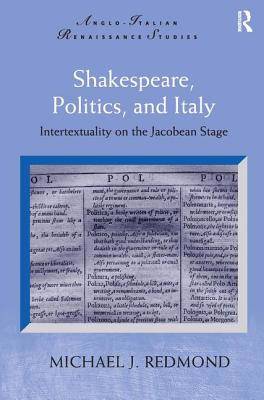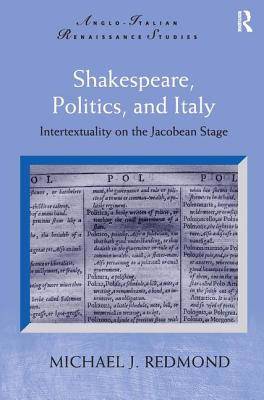
- Afhalen na 1 uur in een winkel met voorraad
- Gratis thuislevering in België vanaf € 30
- Ruim aanbod met 7 miljoen producten
- Afhalen na 1 uur in een winkel met voorraad
- Gratis thuislevering in België vanaf € 30
- Ruim aanbod met 7 miljoen producten
Zoeken
€ 290,45
+ 580 punten
Uitvoering
Omschrijving
The use of Italian culture in the Jacobean theatre was never an isolated gesture. In considering the ideological repercussions of references to Italy in prominent works by Shakespeare and his contemporaries, Michael J. Redmond argues that early modern intertextuality was a dynamic process of allusion, quotation, and revision. Beyond any individual narrative source, Redmond foregrounds the fundamental role of Italian textual precedents in the staging of domestic anxieties about state crisis, nationalism, and court intrigue. By focusing on the self-conscious, overt rehearsal of existing texts and genres, the book offers a new approach to the intertextual strategies of early modern English political drama. The pervasive circulation of Cinquecento political theorists like Machiavelli, Castiglione, and Guicciardini combined with recurrent English representations of Italy to ensure that the negotiation with previous writing formed an integral part of the dramatic agendas of period plays.
Specificaties
Betrokkenen
- Auteur(s):
- Uitgeverij:
Inhoud
- Aantal bladzijden:
- 256
- Taal:
- Engels
- Reeks:
Eigenschappen
- Productcode (EAN):
- 9780754662518
- Verschijningsdatum:
- 7/08/2009
- Uitvoering:
- Hardcover
- Formaat:
- Genaaid
- Afmetingen:
- 156 mm x 234 mm
- Gewicht:
- 535 g

Alleen bij Standaard Boekhandel
+ 580 punten op je klantenkaart van Standaard Boekhandel
Beoordelingen
We publiceren alleen reviews die voldoen aan de voorwaarden voor reviews. Bekijk onze voorwaarden voor reviews.











